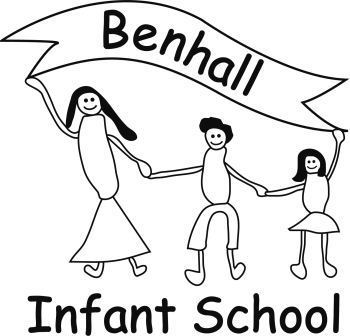Writing at Benhall
At Benhall Infant School, we want our children to leave us as confident writers who have a rapidly growing bank of vocabulary, a range of writerly skill and possess the stamina they need for sustained writing. Our greater depth writers will have a flair for writing because their reading influences what and how they write.
Key features of successful early writers
Features of successful writers have been identified as
- consistency of approach
- gross and fine motor skills
- secure, systematic progression in phonics learning
- direct teaching to initiate and model a range of writerly skills
- providing repeated practice
- providing access to a range of high-quality texts that the children read, hear and discuss
- early identification of children at risk of falling behind.
How we teach writing
- At Pre-School, children follow the Little Wandle Letters and Sounds Revised ‘Foundations for Phonics’ guidance. The focus is on daily oral blending and language development through high quality stories and rhymes. In reception and Y1, children follow the progression within Little Wandle Letters and Sounds Revised programme. Phonics is taught daily and there is a review session on a Friday.
- At Pre-school we foster a love of texts, and the children share a range of books with their teachers. They rehearse story telling language and repeated refrains as their teachers read to them.
- Story telling is encouraged using small world resources, storyboards and puppet theatres and stages
- At Pre-School we use Talk for Writing to introduce story telling orally and Helicopter Stories to support the children’s understanding that their storytelling can be turned into written text.
- When the children enter reception, the teaching team build of the story telling through Talk for Writing and begin to be introduced to the Write Stuff – Writing Rainbow.
- In KS1, the children become independent writers through sentence stacking lessons (Write Stuff) and Independent Writes. The skills they are taught are used are targeted through provision so that the children can continue to rehearse and refine these skills. Teaching staff respond to children in provision by filling gaps through direct teaching or providing extra challenge.
- Children write across the curriculum and are encouraged to use their knowledge of purpose for writing to choose how they show their knowledge in a written form.
The child’s progression as a writer
At Pre-school, I am a mini writer who is developing as an emergent writer. I love to make marks and talk about them. I use the marks I make to form a picture of my experiences and the stories I want to tell.
I am able to:
- Begin to copy my first name
- Use marks to represent letters
Physical Development
- Use a range of small tools: pencils, paint brushes, scissors and knives.
- Developing gross and fine motor skills so I can adopt a tripod grip.
In reception, I am an early writer who is confidently moving from an emergent writer to a writer because I have the knowledge of phonics to write in a phonetically plausible way. I use writing in a range of purposes and enjoy celebrating my success with others. I am inspired to write about me experiences.
I am able to:
- Form lowercase letters and capital letters correctly
- Spell words by identifying the sounds and then writing the sound with letter/s.
- use a capital letter at the beginning of a sentence and a full stop at the end.
- use finger spaces most of the time.
- write my first name and am starting to write my surname independently.
Physical Development
- use a range of small tools competently and confidently like: pencils, paint brushes, scissors and knives.
- write short sentences with words with known sound- letter correspondences, using a capital letter and a full stop.
- develop the foundations of a handwriting style which is fast, accurate and efficient.
- use a tripod grip.
In KS1, I am writer who is able to demonstrate writerly skill for a number of purposes. I understand as a writer that texts have a target audience, and I should write to draw that audience in. I am inspired by the books I read and those that are read to me. I can use my phonic knowledge and taught grammar at word and sentence level to write with flair. I use ambitious vocabulary for effect, and I am building on my skills in creating imagery and purpose in my writing.
I am able to:
- Write for a given purpose – to inform, instruct and or entertain
- Write for a variety of audiences
- Understand the effective shape for the genre under which my writing falls
- Use taught skills to bring my writing alive
- Use ambitious vocabulary
- Spell words correctly
- Use a range of sentence structures
- Evaluate my writing and respond to given feedback
